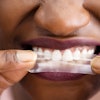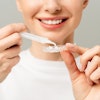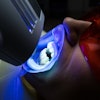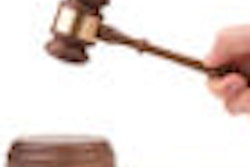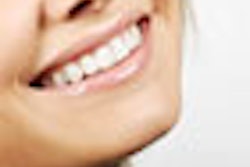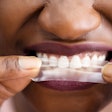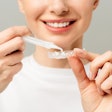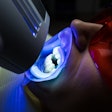
The issue of teeth whitening -- and who has the right to offer it -- is at the center of a lawsuit filed by the New Jersey Dental Association (NJDA) against a tanning salon chain that offers the service.
Beach Bum Tanning, an East Coast chain with 17 locations in New Jersey, has been offering its clients teeth-whitening services as well as tanning services, according to a story in the Star-Ledger.
The NJDA, which represents about 4,700 dentists, acknowledges that many consumers buy and use over-the-counter whitening kits. But outside of the home, New Jersey law allows only dentists to "diagnose, treat, or remove stains or concretions from human teeth," the group's attorney, Arthur Meisel, told DrBicuspid.com.
"Entities other than dentists that provide teeth-whitening services are engaged in the practice of dentistry," Meisel said. "Those providing that service other than in a properly equipped dental facility by a dentist are engaged in dishonest and unfair competition."
In New Jersey, the practice of dentistry includes professional teeth whitening, according to the New Jersey State Board of Dentistry.
Beach Bum Tanning CEO James Oliver told the Star-Ledger that the chain doesn't administer the service, but simply sells the product. Customers who purchase a teeth-whitening kit have the option of taking it home or using a room at the salon equipped with a chair and blue light. The chain offers a 15-minute session that can whiten teeth by up to four or five shades for only $69, he told the newspaper.
Over-the-counter teeth-whitening products typically have low hydrogen peroxide concentrations; whitening toothpaste usually have 1%; and white strips have about 4%. Because the U.S. FDA doesn't see teeth-whitening products as a drug, there is no designated safe amount, according to the ADA.
Dental offices generally use products with concentrations ranging from 25% to 35%, but those require that gum tissue be masked off, said Matthew Messina, D.D.S., a spokesperson for the ADA.
Dr. Messina says it's best to have whitening done at a dentist's office so they can check a patient's oral health.
"Before embarking on whitening, let's make sure your teeth and gums are healthy first," he told DrBicuspid.com. "If you have a cavity and put whitening on it, it can make the tooth very angry and painful."
Beach Bum Tanning's whitening kits have concentrations of about 9% -- slightly higher than the average for take-home kits, according to the story.
Other states too
The debate over teeth whitening has also sprung up in other states, where it has become commonplace for salons, retail stores, and mall kiosks to offer the service. Nondental providers of these services in Oklahoma, Tennessee, Alabama, and New Mexico have all come under fire.
Last year in Tennessee, for example, the state dental board officially banned teeth-whitening kiosks at shopping malls after the dental board found that their services fell under the state's definition of the practice of dentistry.
In Oklahoma, several teeth-whitening kiosks voluntarily shut down in 2008 after the dental board filed an injunction against them, threatening to have the owners charged with a felony if they didn't close their doors. As of November 2008, anyone found to be illegally practicing dentistry in Oklahoma can be charged with a felony. New Mexico has similar laws in place, and in 2009 the Alabama Supreme Court ruled that kiosk teeth whitening does constitute the "practice of dentistry."
And in June, the U.S. Federal Trade Commission filed a complaint against the North Carolina Dental Board for trying to block nondentists from performing teeth-whitening procedures, calling it a conspiracy to "thwart competition." By doing so, consumers were forced to seek whitening from dentists, who typically charge between $300 to $700 per session, compared to the $100 to $150 offered by nondentist businesses, the FTC said.
Copyright © 2010 DrBicuspid.com
